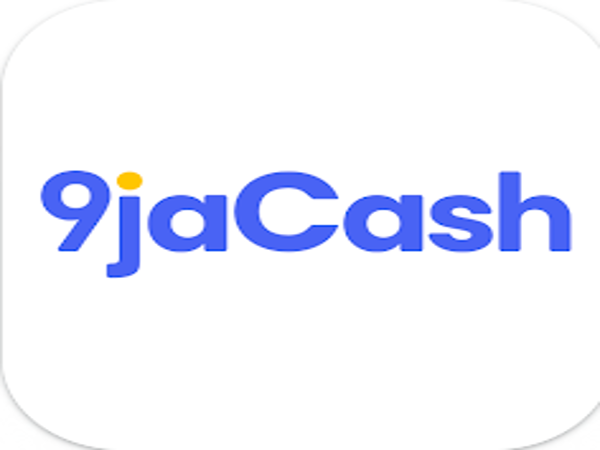Expert Review
-

Ultra Cash
They will send SMS messages to your contacts, falsely claiming you owe them money.
Be prepared for a flood of aggressive WhatsApp messages, even if you're only a day late.
Repayment periods typically range from 6 to 14 days, making it difficult to settle the debt on time.
Overdue interest rates often soar to 5-7% daily, trapping you in an endless cycle of debt.
Once they've damaged your reputation, paying them back becomes futile—they’ve already achieved their goal.
Since they operate without licenses, they have no legal recourse. Their primary tactic is to tarnish your image.
Avoid taking loans from other apps to pay off debts, as this will only deepen your financial woes.
Use Truecaller to block their incessant calls and shield yourself from unnecessary harassment.
The best solution is to stop borrowing from these predatory lenders entirely.
Block them on WhatsApp, and report them to WhatsApp and the Google Play Store to prevent others from falling victim.
-

Vibe Cash Ultra(Fast Cash)
Loan apps can provide quick, accessible credit with minimal documentation and fast approval. However, many come with high-interest rates, hidden fees, and even predatory practices. Here’s how to avoid loan apps and protect yourself when using them.
How to Avoid Relying on Loan Apps
- Build an Emergency Fund: Save up enough to cover 3-6 months of essential expenses to avoid needing quick loans.
- Create and Stick to a Budget: Track your spending, prioritize necessities over wants, and allocate funds wisely to avoid financial shortfalls.
- Explore Alternative Credit Sources: Consider reputable options like banks, credit unions, or peer-to-peer lending platforms with more favorable terms.
- Improve Your Credit Score: A strong credit score can open doors to lower-interest borrowing options.
- Cut Down on Unnecessary Expenses: Reduce discretionary spending to lessen the need for loans.
Precautions When Using Loan Apps
- Review Terms and Conditions Carefully: Understand interest rates, fees, repayment timelines, and any penalties to avoid surprises.
- Verify Lender Legitimacy: Check the lender’s reputation, licensing, and regulatory compliance before borrowing.
- Borrow Only What You Need: Limit borrowing to essential needs to avoid excessive debt.
- Set Realistic Repayment Goals: Plan your repayment strategy to avoid late penalties and high-interest charges.
- Monitor Your Credit Report: Keep an eye on how loan app transactions affect your credit profile.
Smart Strategies for Loan Repayment
- Make Timely Payments a Priority: Paying on time helps you avoid penalties and additional interest.
- Develop a Repayment Plan: Break down debt into manageable amounts that fit your budget.
- Use Automatic Payments: Set up automatic transfers to ensure payments are made on time.
- Consider Debt Consolidation: Combine multiple debts into a single loan with a lower interest rate to simplify repayment.
- Communicate with Your Lender: If you’re experiencing financial difficulties, reach out to discuss potential extensions or revised payment plans.
What to Do in a Financial Crisis
- Seek Professional Financial Advice: Consult with a financial advisor or credit counselor for guidance.
- Prioritize Essential Expenses: Focus on covering necessities like rent, utilities, and food.
- Negotiate with Creditors: Discuss the possibility of payment extensions or reduced payments with lenders.
- Explore Government Assistance Options: Look into programs like unemployment benefits or financial aid for temporary relief.
- Consider Debt Restructuring: Work with a credit counselor to explore debt reorganization options.
Red Flags to Watch for When Using Loan Apps
- High-Interest Rates: Interest rates above 36% APR are generally considered predatory and should be avoided.
- Hidden Fees: Be cautious of fees for origination, late payments, or prepayment penalties that can inflate costs.
- Unclear Repayment Terms: Ensure you fully understand payment schedules, amounts, and potential penalties.
- Lack of Transparency: Avoid lenders who don’t provide clear, detailed information about their terms.
- Aggressive Marketing Tactics: Be wary of loan providers who use pushy or deceptive advertising.
Additional Tips for Safer Loan App Use
- Know Your Regulators: Familiarize yourself with relevant regulatory bodies, like the Central Bank of Nigeria, to report suspicious lenders.
- Research Loan App Reviews: Check feedback from multiple sources to gauge a lender’s reputation and practices.
- Build Financial Knowledge: Educate yourself on personal finance basics and responsible borrowing to make informed decisions.
By staying informed and cautious, you can navigate loan apps responsibly, protect your finances, and make better borrowing decisions.
-

9jaCash
Let's discuss 9jaCash and its practices. Firstly, it's important to note that this service is affiliated with the Sokoloan company and is notorious for sending defamatory messages to your contacts.
Instead of directly informing your contacts about your debt, they resort to sending SMS messages, indicating that you owe them money. Furthermore, they escalate their harassment by sending derogatory messages via WhatsApp, starting as early as one day after your repayment deadline.
Typically, their repayment plans span from 6 to 14 days, making it challenging for borrowers to meet their obligations. What's more concerning is their exorbitant overdue interest rates, ranging from 5% to 7% per day, which can quickly spiral out of control and deepen your debt.
It's imperative not to succumb to their intimidation tactics. Refraining from repayment once they defame you is crucial, as it only serves to enrich them further. As unlicensed loan apps, they lack legal authority. Their primary tool for coercion is defamation.
Attempting to borrow from other loan apps to repay them is a perilous endeavor. They have numerous apps on mobile app stores, so trying to borrow from another source may inadvertently lead you back into their grasp, plunging you deeper into debt.
To shield yourself from their relentless pursuit, consider installing Truecaller on your mobile device. This allows you to identify and block their calls effectively. Additionally, blocking them on WhatsApp and reporting their activities directly on WhatsApp and Google Play Store can serve as deterrents.
Ultimately, the most effective solution to break free from the clutches of loan sharks like 9jaCash is to cease borrowing altogether. By taking control of your finances and avoiding further indebtedness, you can safeguard your financial well-being in the long term.
-

Rocket loan plus
Legality of the Agreement
Under Nigerian Civil Law, particularly in the context of money lending and microfinance banking, a contract may be considered invalid, unenforceable, or void in the following situations:
1. Illegal or Unlicensed Money Lender
According to the Money Lenders Act, any money lender operating without a valid license from the relevant state authorities or the Central Bank of Nigeria (CBN) is illegal, making contracts with them unenforceable
2. Unconscionable or Exploitative Terms
Contracts with excessive interest rates or hidden fees may be deemed unconscionable and unenforceable under consumer protection laws.
The Central Bank of Nigeria (CBN) caps interest rates for microfinance banks and regulates fair lending practices.
3. Fraud, Misrepresentation, or Coercion
A contract is voidable if the lender used deception, misleading statements, or threats to force a borrower into signing.
Section 19 of the Money Lenders Act states that fraudulent or deceptive lending practices can make a loan agreement unenforceable.
4. Breach of Privacy & Harassment by Loan Apps
Loan apps that invade borrowers’ privacy by sending defamatory messages to contacts violate the Nigerian Data Protection Regulation (NDPR).
FCCPC has declared harassment by loan apps as illegal, and contracts based on such practices can be challenged as invalid.
5. Absence of a Proper Written Agreement
Under the Money Lenders Act, any loan exceeding ₦20,000 (varies by state) must have a written agreement signed by both parties.
If there is no signed agreement, the lender may not be able to enforce repayment legally.
6. Violation of Loan Tenure & Repayment Rules
CBN guidelines on microfinance lending specify minimum and maximum repayment tenures.
A contract that violates these guidelines may be challenged.
7. Duress or Undue Influence
If a borrower is forced to sign under threats, blackmail, or undue influence, the contract is invalid under Section 20 of the Contract Law of Nigeria.
8. Lending to a Minor
A loan contract with anyone under 18 years old is automatically void under the Nigerian Contract Law.
Step by step guide to break free from loan apps
What you should know
-

Any loan sharks that defame are never linked to the credit bureau in anyway and all they say to you are lies.
-

Loan shark money cannot help solve anybody matter to better 40% - 70% in 7 days, they are simply misery compounders!! Do away with them.
-

Loan Apps major aim is to make outrageous profit from people and render people bankrupt. Dont be a victim
What people are saying
Add a review
Your comment could save a life! Share your experience with loan apps and help others escape the clutches of Loan Shark Apps.
